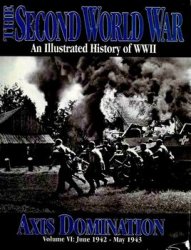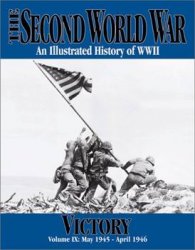The reappearance of the Greek epics in western Europe and the revival of interest in Greek language and literature that this sparked ushered in an age of marked neoclassicism, in which Greek literature was venerated as the premier form of literary expression. In the seventeenth and eighteenth centuries, however, Homeric poetry became the focus of debates concerning originality and genius, the nature of poets and poetry, and the relationship of the poet to his or her culture. Homeric poetry played a central role in the querelle des anciens et des modernes (‘‘quarrel between Ancients and Moderns’’) in the late seventeenth century, in which literary scholars in France and England debated the current debt to antiquity and the extent to which contemporary poets should imitate classical models. Translation became a polemical act, by which one argued for one side or the other. As we have seen, both Chapman’s and Pope’s translations are as much their own poetic expression as they are ‘‘Homer’s.’’ Pope explicitly discussed his translations in terms of‘‘fire’’ and ‘‘invention,’’ which were concepts that pervaded discussions of poetry and genius at the time (Simonsuuri 1979).
In this context an interest in vernacular literature began to develop and early theories about the orality of the Homeric poems were formulated, together with the so-called ‘‘Homeric Question.’’ Homer was now thought to be a genius, but one who was born and who composed in a primitive culture. Or alternatively, Homer was the genius who had collected the songs of a primitive people and joined them into a whole. Bentley objected that Pope’s Iliad was not ‘‘Homer’’ largely because it was too sophisticated and too much like Virgil (Underwood 1998: 33). Bentley was among a group of scholars who had begun to question traditional views about Homer as poet and to argue that the Homeric poems were composed orally and transmitted over the course of many generations by reciters known as rhapsodes. The culture that had given birth to the Homeric epics soon became the center of intense inquiry. In 1730, Giambattista Vico published his massive work, La scienza nuova seconda, which contained within it a book-long discussion entitled ‘‘Della discoverta del vero Omero’’ (‘‘On the discovery of the true Homer’’). Vico argued that poetry is the expression of the culture that produces the poet and that the Homeric epics represent the collective mind of the Greeks. Vico was also arguing against an understanding of Homer, prevalent since antiquity, that made him a theologian and philosopher, a revealer of sacred truths. Vico claimed that poets do not possess esoteric wisdom, but are a product of their culture, and that Homer was a man of the people who had inherited an oral tradition based on historical events in the distant past.
Vico’s views were enormously influential, and coincided with a growing interest in folk poetry, particularly English and Scottish ballads, which were being collected and circulated by scholars interested in these questions. In 1760 James Macpherson published Fragments of Ancient Poetry Collected in the Highlands of Scotland, and Translated from the Gallic or Erse Language, followed by Fingal, An Ancient Epic in 1761 and Temora, An Epic Poem in 1763. Macpherson attributed this body of poetry to a third-century Gaelic warrior turned bard named Ossian. The poems enchanted England and Europe and had a significant impact on subsequent literature, ushering in almost single-handedly the Romantic movement. It was later discovered that Macpherson’s ‘‘translations’’ were largely poems of his own creation, based on songs and tales that he had collected in trips to the Highlands in 1760 and 1761. Macpherson was born and raised in the Scottish Highlands and was well versed in the Gaelic mythological traditions that were still vibrant during his lifetime, even as the English were vigorously attempting to suppress Highland culture. It had been Macpherson’s goal when he set out in 1760 to collect and translate a Highland epic akin to the Homeric Iliad. He soon came to believe, however, that the poetry he was able to collect had been corrupted over the many centuries since the lifetime of Ossian, and he therefore felt compelled to reconstruct this epic on the basis of the sum total of his knowledge of the tradition (Stafford 1996). The similarities between the legendary figure of Ossian and the conception of Homer at this time are striking. Both were seen to be primitive folk poets of‘‘original genius’’ whose poems were transmitted orally for centuries and became corrupted through time, and both were thought to embody the creativity of a primitive culture.
In Germany, the philosopher and critic Johann Gottfried von Herder developed ideas similar to Vico’s, and, inspired by the Ossianic poems of Macpherson, published his own collection of Volkslieder in 1778-9, which contained German, Nordic, and English songs. (Herder then in turn inspired the Grimm brothers in the collection of German folktales.) Herder is well known for his theories about the close relationship between thought and language and the ties between language and culture, theories which inspired scholarly interest in a variety of folk traditions, including dance, music, and art. He became close friends with the German poet Goethe, and it is under Herder’s influence that Goethe and others composed the works that came to be known as the Sturm und Drang (storm and stress), the predecessor of the German Romantic movement. These poets rejected the formal constraints of neoclassicism in favor of natural enthusiasm, which they saw to be exemplified by Homeric poetry.
Thus between the early Renaissance and the late eighteenth century the figure of Homer had been transformed into a variety of incarnations in both academic and literary circles, and was consistently the focal point of poetic controversy. The Homeric Question was now in the process of being formulated, and it was in this context that Villoison published the tenth-century Venetus A codex manuscript of the Iliad of Homer (codex Marcianus Graecus 454) in 1788. As I have noted above, this manuscript contains a wealth of scholia, those marginal and interlinear notes that accompany the text of Homer in a wide variety of manuscripts and that derive ultimately from the Alexandrian scholars of antiquity. With the publication of the Venetus A, Homeric scholars of the late eighteenth century suddenly found themselves blessed with a treasure trove of information about what scholars of the second century bce knew about Homer. It seemed that it would now be possible to reconstruct Homer and Homer’s original text, and all of the Homeric questions could be solved (Nagy 1997: 106).
This was the hope and belief of Villoison, the editor of the editio princeps of the Venetus A, who viewed the scholia as an authoritative witness to an authoritative edition of Homer, constructed by the premier textual critic of Homer in antiquity, Aristarchus. But the views of Friedrich August Wolf, published in 1795 in his Prolegomena ad Homerum, proved to be more influential. Wolf questioned the authoritativeness of the scholia and the work of the Alexandrian critics. Wolf argued, moreover, that the Homeric poems had been transmitted by rhapsodes in an oral tradition that had corrupted the texts irreparably over time. For these reasons, the true and genuine text of Homer could never be recovered. Wolf produced his own editions of the Greek texts of the Iliad and Odyssey, relying heavily on the medieval transmission of the two poems and disregarding much of the textual work of the Alexandrians. Wolf’s editions established a kind of medieval vulgate that continues to be followed to this day in modern printed editions: the line numbers in use by all modern editors are those of the highly conservative ‘‘Wolfian vulgate.’’
The debates associated with the Homeric Question only intensified after publication of the Venetus A and continued to dominate scholarly discussions of Homer in the nineteenth century. The ‘‘question’’ (which was, in reality, many questions) became increasingly concerned with authorship. Did the Iliad and Odyssey have the same author? If so, when did he live? If not, how did the poems come to be in the form that we now have them? Fierce opposition arose between scholars who believed in Homer, a single genius and creator of the two foundational epics of western civilization, and those who saw the Homeric texts as the products of potentially many poets composing over many generations. These Unitarians on the one hand and Analysts on the other, armed with all of the tools of philology, scrutinized the poems and produced learned readings in defense of variations on these two positions. Analysts further debated among themselves about the age and authenticity of various portions of the poems, as they searched for the oldest and ‘‘most Homeric’’ segments.
Another important branch of the Homeric Question in the nineteenth century was a concern with the relationship between myth, epic, and history (see Chapter 5, by Raaf-laub). Did the Trojan War take place? If so, how closely does the Iliad reflect what actually happened? In the late nineteenth century a wealthy businessman, Heinrich Schliemann, astonished the world when he uncovered the remains of a Bronze Age Troy in a mound known as Hisarlik in northwestern Turkey, and soon after, the wealthy Bronze
Age citadel in Mycenae in mainland Greece, where Agamemnon was said to have ruled (see Chapter 9, by Sherratt). Schliemann had set out from the beginning to find the Troy of the Homeric poems, and quite literally bulldozed his way towards that goal, destroying most of what would turn out to be Bronze Age Troy. Later, when he uncovered human remains covered in gold and wearing a gold mask in a Mycenaean tomb, he sent a telegram to the king of Greece, proclaiming that he had looked upon the face of Agamemnon. Schliemann’s methodology and naivete have been fiercely criticized by modern archaeologists and historians, but his accomplishment, namely the discovery of a previously unknown Bronze Age world not unlike that depicted in the Homeric epics - the world now known as Mycenaean Greece - had a lasting and profound impact on our understanding of the Iliad and Odyssey and the historical context in which they were generated.




 World History
World History









